DuckDuckGo proxy – it’s a term that’s been buzzing around privacy circles lately, but what does it really mean? I’ve spent years diving deep into online privacy tools, and I can tell you that understanding the relationship between DuckDuckGo and proxies is crucial for anyone serious about protecting their digital footprint.
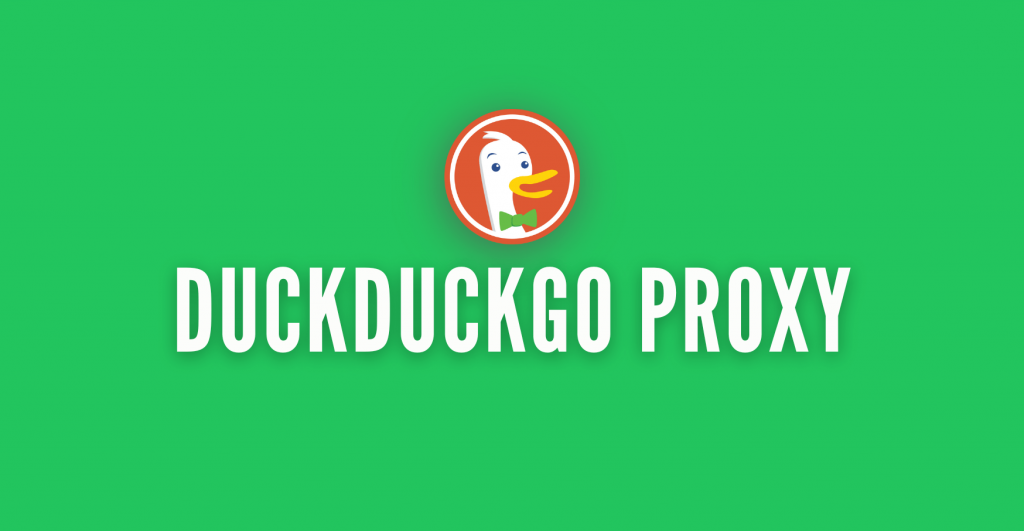
Disclaimer: This material has been developed strictly for informational purposes. It does not constitute endorsement of any activities (including illegal activities), products or services. You are solely responsible for complying with the applicable laws, including intellectual property laws, when using our services or relying on any information herein. We do not accept any liability for damage arising from the use of our services or information contained herein in any manner whatsoever, except where explicitly required by law.
Back in 2019, I made the switch to DuckDuckGo as my primary search engine. The difference was night and day – no more creepy personalized ads following me around the web. But I soon realized that while DuckDuckGo was a great start, combining it with a proxy could take my privacy game to the next level.
In this guide, I’ll break down exactly what DuckDuckGo is, how it differs from a proxy, and why you might want to use both.
Whether you’re a privacy newbie or a seasoned pro, you’ll walk away with actionable tips to protect your online activities from prying eyes.
Let’s dive into the world of DuckDuckGo and proxies.
Table of Contents
- What is DuckDuckGo?
- What Makes DuckDuckGo Different From Traditional Search Engines?
- What is a Proxy [TL:DR]
- No, DuckDuckGo is Not a Proxy Service
- Why Use a Proxy with DuckDuckGo?
- How to Use a Proxy with DuckDuckGo
- DuckDuckGo and Proxies for Business Use
- Troubleshooting
1. What is DuckDuckGo?
DuckDuckGo is a search engine that puts your privacy first. I’ve been using it since 2019, and I can confidently say it’s a game-changer for anyone concerned about online tracking.
Here’s the lowdown:
DuckDuckGo was founded in 2008 by Gabriel Weinberg. Its mission was to prove that searching the web doesn’t have to come at the cost of your privacy. Unlike the big players in the search game, DuckDuckGo set out to show that effective search and user privacy aren’t mutually exclusive.
Key Privacy Features
- No personal data collection: DuckDuckGo doesn’t store your search history or create user profiles.
- No search leaks: When you click on results, websites don’t receive your search terms.
- No IP address logging: Your searches aren’t linked to your computer or location.
- HTTPS encryption: All searches are encrypted.
2. What Makes DuckDuckGo Different From Traditional Search Engines?
The biggest difference I’ve noticed is the absence of the filter bubble. You know that feeling when search results seem eerily tailored to you? That doesn’t happen with DuckDuckGo. Here’s why:
- Everyone sees the same results for a given search term.
- Ads are based on your current search terms, not your search history or personal information.
- Quick, concise information appears above the search results for many queries.
In my experience, switching to DuckDuckGo was jarring at first. I was used to Google’s personalized results. But after a few weeks, I came to appreciate the unbiased, tracking-free search experience. It felt like I was taking back control of my digital footprint.
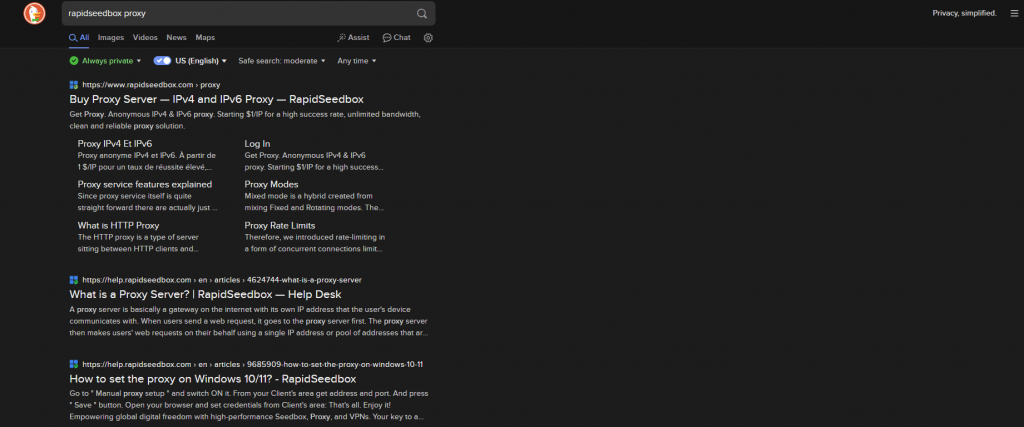
However, it’s important to understand that while DuckDuckGo provides excellent search privacy, it’s not a comprehensive solution for all online privacy concerns. That’s where the concept of using a proxy with DuckDuckGo comes in.
3. What is a Proxy [TL:DR]
A proxy server acts as an intermediary between your device and the Internet. When you use a proxy, your Internet traffic passes through the proxy server before reaching its destination. This process masks your IP address and can make it appear as if you’re browsing from another location.
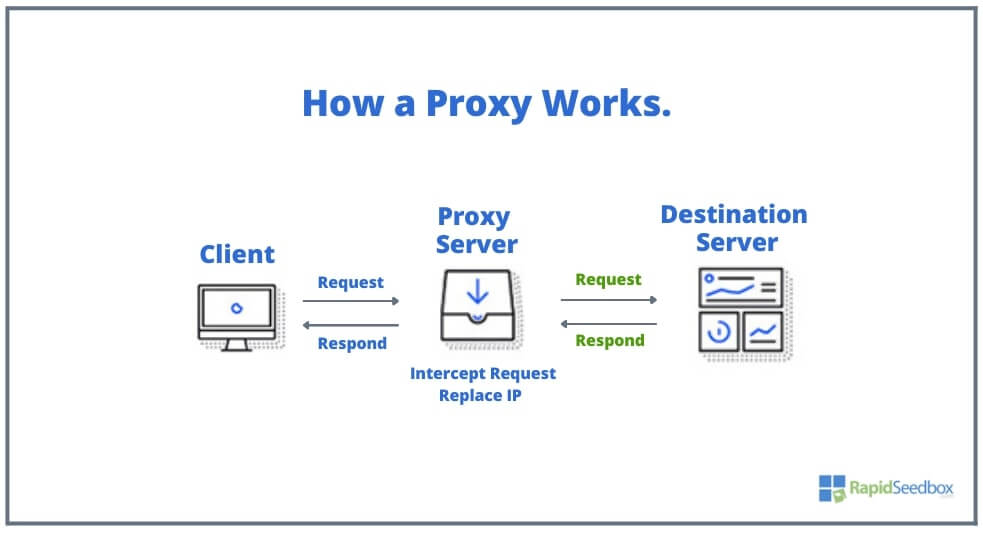
4. No, DuckDuckGo is Not a Proxy Service
I’ve encountered a lot of misconceptions about DuckDuckGo and proxies in my years of privacy advocacy. Let’s set the record straight.
First things first: DuckDuckGo is not a proxy.
I can’t tell you how many times I’ve had to explain this to colleagues and friends. DuckDuckGo is a search engine that prioritizes privacy, but it doesn’t route your internet traffic through intermediary servers like a proxy does.
Here are the key differences:
| Aspect | DuckDuckGo | Proxy Services |
|---|---|---|
| Functionality | Provides private search results. | Masks your IP address and can change your apparent location. |
| Scope | Privacy features apply only to search activities. | Can affect all internet traffic, depending on the configuration. |
| Data Handling | Doesn’t store personal information. | May log data, depending on their privacy policies. |
| Ease of Use | As simple to use as any search engine. | Often requires configuration and may slow down your connection. |
| Privacy Features | – Doesn’t track search history. – Blocks ad trackers. – Enforces encrypted connections to sites when available. – Provides unbiased search results. | – Hides your IP address. – Can bypass geo-restrictions. – May offer encryption (depends on the type). – Doesn’t inherently provide private search results. |
All in all, the term “DuckDuckGo proxy” is often misused. In reality, DuckDuckGo doesn’t offer or endorse any specific proxy service. However, using a proxy in conjunction with DuckDuckGo can provide an additional layer of privacy.
5. Why Use a Proxy with DuckDuckGo?
If you combine DuckDuckGo with a proxy, you can create a really effective privacy shield. I’ve tried this out a lot, so I’ve learned a few things about why you might want to think about doing it.
a. Protecting your privacy
- Avoiding ISP snooping: Your Internet Service Provider can see your online activities, even when using DuckDuckGo. Adding a proxy masks your traffic, keeping your searches truly private.
- Public Wi-Fi Protection: When I’m working from coffee shops, I always use a proxy or a VPN with DuckDuckGo. Public Wi-Fi networks are unsafe more often than not.
- Bypassing geographic restrictions: You can access content that is geo-blocked in your location.
- Preventing website tracking: Some sites can still track your browsing activity, but a proxy can help hide this information, which works well with DuckDuckGo’s anti-tracking features.
Looking for a more private browsing experience with DuckDuckGo?
Protect your privacy by pairing DuckDuckGo with a reliable proxy service. Safeguard your online activities and maintain anonymity effortlessly with our secure proxies. Experience the full potential of private browsing today!
b. Benefits of using DuckDuckGo with a proxy
- Double layer of privacy: DuckDuckGo keeps your searches private, while the proxy masks your IP and location.
- Access to region-locked content: You can search privately with DuckDuckGo and access geo-restricted sites through your proxy.
- Reduced digital footprint: The proxy hides your IP address from sites you visit through DuckDuckGo search results, which helps to keep your online activity as private as possible.
- Circumventing censorship: In countries where the internet is restricted, this combination can help you keep access to uncensored information.
c. Potential drawbacks
- Your connection can slow down, especially with free or overloaded proxies.
- Setting up and maintaining a proxy requires some technical know-how.
- You’re essentially shifting trust from your ISP to the proxy provider. Make sure you choose reputable services.
- Some websites may block known proxy IPs, affecting your browsing experience.
I don’t always use a proxy with DuckDuckGo, but I do when I’m handling sensitive information or using public Wi-Fi. The key is to assess your privacy needs and use the right tools for the situation.
6. How to Use a Proxy with DuckDuckGo
Setting up a proxy to use with DuckDuckGo is pretty straightforward. I’ve done this multiple times on different devices, so I’ll share my step-by-step guide to help you get started.
Step-by-Step Guide:
- First, select a reputable proxy service. I’ve had good experiences with Rapidseedbox’s proxy servers. Naturally, there are also free proxies, but I’d caution against them due to potential security risks.
- Once you’ve chosen a service, you’ll receive the proxy server address, port number, and eventually a username and password.
- Configure your browser. Here’s how to set up a proxy in popular browsers:
For Chrome:
- Click the three dots in the top right > Settings
- Scroll down to “System”
- Click “Open your computer’s proxy settings”
- Toggle “Use a proxy server” on
- Enter the proxy server address and port
For Firefox:
- Click the hamburger menu > Options
- Scroll to “Network Settings”
- Click “Settings”
- Select “Manual proxy configuration”
- Enter your HTTP Proxy and Port
For Safari:
- Click Safari > Preferences > Advanced
- Click “Change Settings” next to Proxies
- Select your proxy type and enter the details
Mobile Devices
For iOS:
- Go to Settings > Wi-Fi
- Tap the “i” next to your network
- Scroll to “HTTP Proxy” and select “Manual”
- Enter your proxy information
For Android:
- Go to Settings > Wi-Fi
- Choose the network you are connected to.
- Click on Settings
- Go to View more.
- Under “Proxy”, select “Manual”
- Enter your proxy details
Once you’ve got your proxy set up, just head to DuckDuckGo in your browser. From now on, your searches will go through both DuckDuckGo’s privacy protection and your proxy server.
I often use browser extensions like FoxyProxy for Firefox or Proxy SwitchyOmega for Chrome to make switching easier. These let me quickly toggle between proxy servers or direct connections.
Personal remarks: When I first set this up, I made the mistake of using a free proxy. My connection was really slow, and I later found out the proxy was logging my data. I switched to a paid service, and the difference was incredible – faster speeds and a trustworthy privacy policy.
7. DuckDuckGo and Proxies for Business Use
In my consulting work with tech startups, I’ve seen a lot of different ways that DuckDuckGo and proxies can be used in business. That said, let’s check out some business use cases.
a. Web Scraping
Web scraping is the automated collection of data from websites. It is a pretty standard business practice. On the downside, it’s a bit of a gray area when it comes to DuckDuckGo and proxies. This is why:
- DuckDuckGo, like most search engines, has a robots.txt file that should be honored.
- Excessive requests can strain DuckDuckGo’s servers.
- DuckDuckGo explicitly prohibits scraping in their ToS.
- Scraping and republishing content may infringe on copyrights.
- CFAA violations – Unauthorized access to computer systems is illegal in many jurisdictions.
- GDPR and data protection: Scraped data might contain personal information, that requires careful handling.
Alright, let’s be real. Web scraping might get you the data you’re after, but it can quickly turn into a nightmare with all the legal issues it brings. Instead of risking all that, why not consider some other approaches? There are better ways to get what you need without the stress and potential fallout. Let’s look at some alternatives that could make your life a lot easier. My conscious will be much clearer if I give you some other options to consider.
b. Alternative Methods for Data Collection:
Instead of scraping, consider the following alternatives:
- Many search engines offer APIs for data access. While DuckDuckGo doesn’t have a public API, other privacy-focused search engines might.
- Reach out to companies directly for data-sharing opportunities.
- Services like SimilarWeb or Ahrefs offer ways to gather market intelligence. Yes, I know, they cost money. However, they are viable alternatives.
- Last, but not least, government databases and academic repositories often provide valuable, legally accessible data.
However, if it’s not web scraping you are after, there are some perks worth noting.
c. Business Benefits of Using DuckDuckGo with a Proxy
There are lots of ways that using DuckDuckGo and proxies can benefit businesses, beyond just data collection. Here’s just a few:
- Competitive research: Conduct market research without leaving digital footprints.
- Ad verification: Check ad placements across different geographic locations.
- Content accessibility testing: Ensure your content is accessible globally.
- Improved employee privacy: Protect sensitive searches related to business strategy or R&D.
d. Business Needs vs Ethics and Legality
It’s really important to find a good balance between what your business wants to achieve and what’s right, wrong, and most importantly, legal. I always tell my clients to do the following:
- It’s a good idea to check in with the legal team before you start collecting any data.
- It’s important to have clear internal policies on data collection and usage.
- Make sure you keep user privacy and consent at the top of your list when you’re doing anything related to data.
- It’s always a good idea to search for partnerships and official channels before resorting to web scraping.
It’s important to remember that following ethical practices not only helps you stay on the right side of the law, but it also builds trust with your customers and partners.
8. Troubleshooting
Even with the best privacy setup, you might run into a few issues along the way. I’ve faced my fair share of challenges while using DuckDuckGo and proxies, so let’s explore some common problems and their solutions.
a. DuckDuckGo Access Problems:
DuckDuckGo Not Loading:
- Sometimes, your ISP might have DNS issues. Switching to Google’s DNS (8.8.8.8) solves the problem.
- Region-specific blocking:
- Use a proxy or VPN from a different region
- Try DuckDuckGo’s Tor hidden service (.onion address)
Proxy Configuration Errors:
- Proxy not connecting:
- Double-check the proxy address and port
- Check if your proxy service is active and paid for
- Try a different proxy server from your provider
- Slow connection speeds:
- Switch to a less congested proxy server
- Use a wired connection instead of Wi-Fi
- Upgrade to a premium proxy service if you haven’t or contact your provider if you have.
- Websites blocking proxy access:
- Try a different proxy server
- Use a residential proxy instead of a datacenter proxy
- Consider using a VPN as an alternative
Performance Roadblocks:
- Captchas everywhere:
- This often happens with proxy use. Try switching the proxy servers or temporarily disabling the proxy for that site. Additionally, you can use a service like CapSolver.
- Inconsistent search results:
- DuckDuckGo doesn’t personalize results, so this is normal. However, if you’re seeing drastically different results, your proxy might be affecting localization.
Troubleshooting Tips:
When I come across a problem, I follow this process:
- Disable the proxy and try connecting directly
- If the problem persists, it’s likely not proxy-related
- Check DuckDuckGo’s status page for any known issues
- Clear browser data and restart the browser
- If all else fails, try a different device or network
9. DuckDuckGo Proxy – Final Words
We’ve looked at all the different ways you can use a DuckDuckGo proxy, and it’s clear that while DuckDuckGo is a great privacy tool, using a proxy with it makes your security even better by hiding your IP address and getting around geo-restrictions. Setting up a proxy might seem a bit technical, but it’s worth it for the extra privacy.
When I first started using DuckDuckGo in 2019, it was a bit of a niche option, but now it’s a go-to for users who are concerned about privacy. Combining it with proxies, VPNs, or even Tor can give you greater control over your digital footprint. I’ve learned firsthand that while these tools are powerful, they require careful use – like avoiding mistakes such as accidentally exposing personal info by not paying attention to which account I was logged into.
As online privacy becomes more and more important, even small steps like using DuckDuckGo and exploring proxies can make a big difference. It’s not only about becoming invisible online – it’s about gaining control over your data.
Want to boost your online privacy with DuckDuckGo?
Combine the power of DuckDuckGo with our robust proxies for unmatched security and anonymity. Browse with peace of mind, knowing your data is safe and your privacy protected.
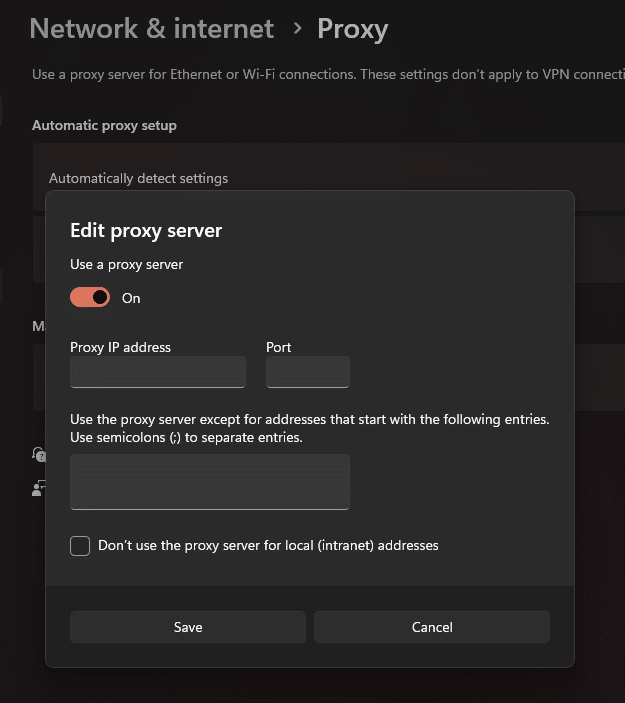
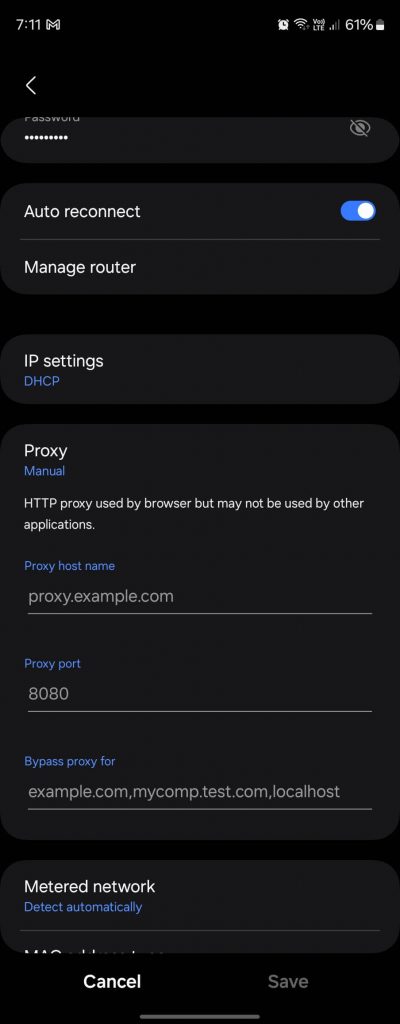
0Comments